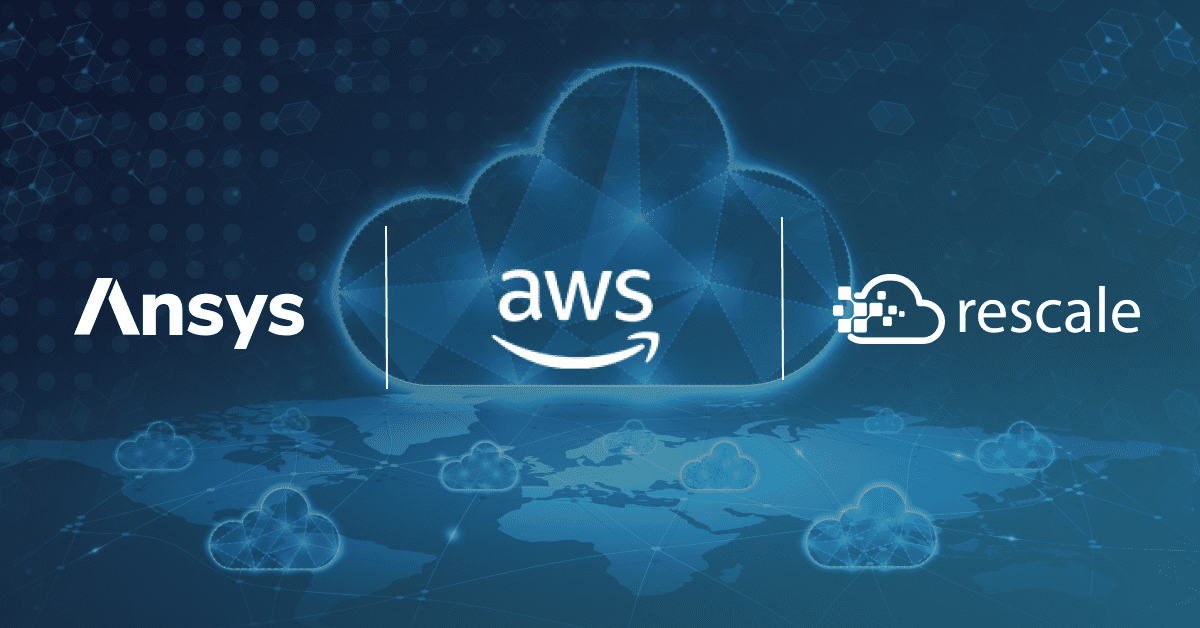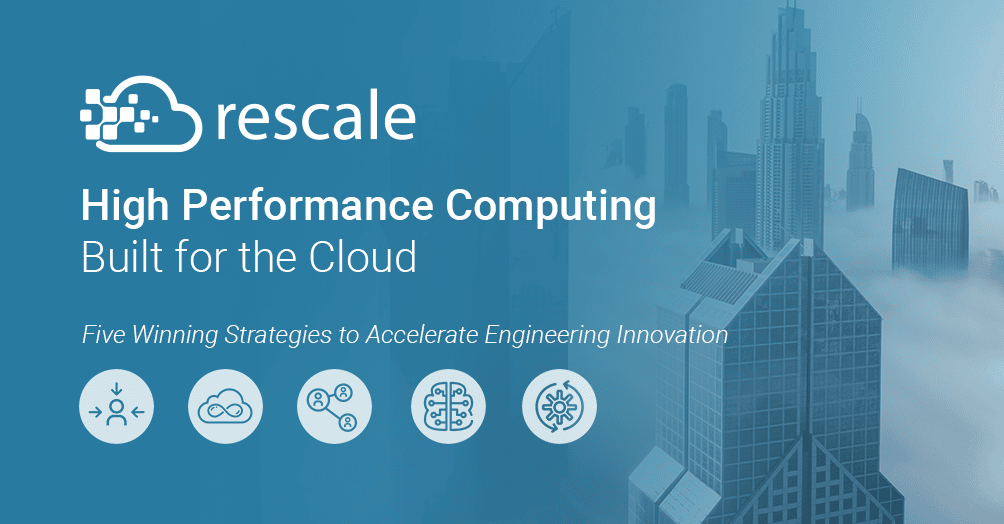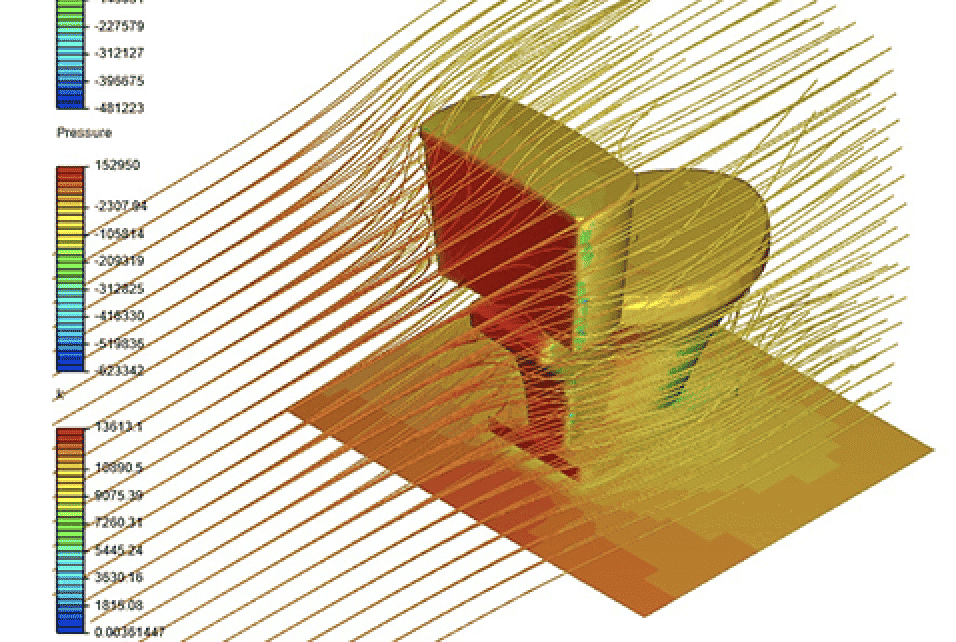Rescale Automates the Deployment of Ansys LS-DYNA and Ansys Fluent Workloads on Amazon EC2 Hpc7g Instances
Rescale offers cost-performance optimization of Arm-based HPC solvers
Rescale is excited to announce that Ansys LS-DYNA and Ansys Fluent workloads are now available to run on Amazon EC2 Hpc7g instances, powered by Arm-based AWS Graviton3E via the Rescale platform.
Amazon EC2 Hpc7g instances are a new purpose-built instance type for tightly coupled compute and network-intensive high performance computing (HPC) workloads that contain custom 64-bit Arm-based processors. Arm-based architectures are generally known for their higher core counts with better performance per watt and their energy efficiency owing to reduced instruction set computing (RISC) that generates less heat, offering better heat dissipation.
Running Ansys simulations while using Rescale’s workflow automation capabilities and user-friendly interface will help reduce many complexities often faced when managing HPC in the cloud. Security risks with data are mitigated by Rescale taking numerous measures designed to ensure customer privacy and data confidentiality, including external certifications and compliance efforts (i.e. FedRAMP, ITAR, etc.), data encryption, and account settings and administrative controls.
Simply put, you now have an option through Rescale to pay only for the infrastructure that you use to run Ansys LS-DYNA and Ansys Fluent workloads on Hpc7g instances, all while leveraging the elasticity of cloud compute resources. You focus on research and innovation and leave managing complex and secure IT systems to Rescale.
Advantages of Running HPC Workloads On Arm-Based Architectures:
- Cost: Hpc7g instances offer up to 70% better performance and up to 3x better price performance compared to previous-generation AWS Graviton-based instances for compute-intensive HPC workloads.
- Energy efficiency: Arm processors offer energy-efficient performance and reduced power consumption, which leads to lower electricity usage. This helps organizations decrease their carbon footprint, contributing to a more environmentally friendly computing infrastructure
What to Consider When Running HPC Workloads On Arm-based Architectures:
- Choose the right hardware: When choosing hardware for an Arm-based HPC system, it is important to select components that are compatible with each other and that are optimized for HPC workloads.
- Compile software for Arm processors: If you are using HPC software that is not pre-compiled for Arm processors, you will need to compile it yourself. This can be a complex process, but there are numerous resources available to help you.
- Use a cloud platform: Cloud platforms such as Rescale can make it easier to run HPC workloads on Arm-based processors. Cloud platforms provide access to a wide range of Arm-based hardware and software, and they can help you to manage the complex infrastructure and software required for HPC workloads.
Rescale can help to address these challenges by providing a platform that makes it easier to deploy and manage HPC workloads on Arm-based CPUs. Rescale’s platform includes a number of features that can help to optimize price performance, including:
- Automated provisioning and management: Rescale can automatically provision and manage HPC clusters on Arm-based CPUs, which can save time and resources.
- Optimized software stack: Rescale provides a pre-optimized software stack for Arm-based CPUs, which can help to improve performance.
- Performance monitoring and analytics: Rescale provides tools for monitoring and analyzing the performance of HPC workloads, which can help to identify and address performance bottlenecks.
“Rescale is excited about Amazon EC2 Hpc7g instances with more floating-point performance and more EFA bandwidth. We’re already anticipating how the introduction of Hpc7g instances’ better price performance combined with the energy efficiency of AWS Graviton processors will take computational fluid dynamics (CFD) and a host of real-world production HPC workloads further,” says Mulyanto Poort, vice president of HPC engineering at Rescale. “The introduction of Amazon EC2 Hpc7g instances will help our customers further accelerate their digital engineering efforts while reducing their carbon footprint.”
Performance Benchmarking of Ansys LS-DYNA and Ansys Fluent on Amazon EC2 Hpc7g Instances
Hpc7g instances are available today on Rescale under coretype name “Pectolite.” To show the performance of AWS Graviton3E instances, we wanted to compare two industry-leading software packages, Ansys Fluent and Ansys LS-DYNA. For a relevant comparison, we looked at the performance of these two Arm 64 built packages against the previous generation Amazon EC2 C6gn AWS Graviton2-based instances, known on Rescale as core type “Palladium”.
Ansys LS-DYNA is an implicit and explicit finite element method (FEM) simulation tool for nonlinear structural analysis and is one of the most widely used simulation methods in the automotive industry for structural design and crash simulations.
Siddharth Shah, Principal product manager at Ansys, recently commented on AWS Hpc7g Instance product page that “Ansys is excited to support the LS-DYNA solver on the new Amazon EC2 Hpc7g instances, powered by ARM-based AWS Graviton processors. Mutual customers can expect a significant boost in compute performance at a lower cost while also saving energy, helping make progress toward achieving sustainability goals.”
Our testing of LS-DYNA validates Siddharth’s viewpoint on Hpc7g instances as we saw great performance improvements between Pectolite (Amazon EC2 Hpc7g instances) and Palladium (Amazon EC2 C6gn instances) using a 3.2 million element, caravan-to-caravan test model. At 256 cores, we saw a speedup in iteration time of nearly 40%. While these FEM codes generally are more difficult to scale, we still see a small increase of 6% in parallel efficiency compared to C6gn instances showing the ability of Pectolite (Hpc7g instances) to reduce the time to solution for even these challenging problems.
One of the key reasons why these instances perform so well is that AWS Graviton 3E-based EC2 instances provide nearly 2x higher floating-point performance compared to the sixth-generation AWS Graviton2-based instances. They also provide up to 35% faster vector instruction set computations compared to current generation Graviton3 instances. In addition to the increase in raw compute performance, Hpc7g instances are one of the first instances to utilize Double Data Rate 5 (DDR5) memory, which provides 50% higher memory bandwidth compared to DDR4 memory. This increase in memory bandwidth helps to reduce the bottleneck on the CPU for these types of workloads.
Figure 1:

The other code we tested is Ansys Fluent, an industry-leading CFD tool for fluid simulation, heat transfer, mixing, and multiphase flow. Ansys Fluent is leveraged around the world in a wide range of industries, from aerospace, energy, and automotive to manufacturing and pharmaceuticals. Tightly coupled CFD codes like Ansys Fluent are some of the most infrastructure-demanding HPC workloads to run.
We tested Ansys Fluent using a 140M cell model of an F1 vehicle. As expected, we saw great performance uplifts with small clusters showing the advancements in the CPU and memory bandwidth of the Hpc7g instances. What is really impressive is the sustained uplift and strong scaling at many thousands of cores. Hpc7g instances show a 45% speedup in iteration speed at 2048 cores compared to C6gn instances with an observed parallel efficiency of 75%. This shows that Hpc7g instances can scale efficiently with even the largest and most demanding tightly coupled HPC workflows.
Figure 2:

This impressive parallel scaling performance in the cloud is enabled by the advancements AWS has made with Elastic Fabric Adapter (EFA), powered by the AWS Nitro System. The Nitro System has not only allowed for the offloading of virtualization functions from the host machine, but allowed for even more advanced features such as more robust, lower latency networking using scalable reliable datagrams (SRD) and native network encryption.
Use Rescale’s new Performance Profile feature to seamlessly run your own benchmarks and see for yourself.
How to get started with Amazon EC2 Hpc7g Instances on Rescale
Sign up to schedule a meeting at SC23 or receive a two-week free trial of Amazon EC2 Hpc7g instances on Rescale









